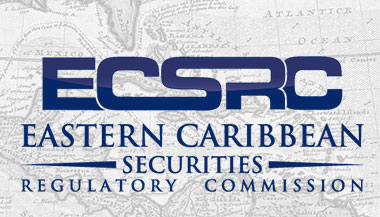BEING AN ALERT INVESTOR
Investment Fraud: What you need to know
An investment scam, which is designed to part you from your money, might involve legitimate products that are sold illegitimately or completely illegitimate investment products. Either way, the people who try to push these scams hope that they are dealing with an unwitting or gullible person. By the time you figure out that you have been the victim of a scam or fraud, these people hope to be long gone—with your money. To protect yourself against these frauds and schemes, it is important to be able to identify their basic characteristics.
Kinds of Scams
Investment scams take many forms—and unfortunately criminals and con artists come up with new ones all the time. While the particulars of an actual investment scam might change, the basic kinds of securities fraud fall into recognizable categories:
- Pump-and-dump: This term applies to a stock scam in which a con artist deliberately buys shares of a very low-priced stock of a small company, known as a penny stock, and then spreads false information to drum up interest in the stock and increase its stock price. After unwitting investors purchase shares, believing they’re getting a good deal on a promising stock, the con artist dumps his shares at the high price and vanishes, leaving many people caught with worthless shares of stock. You might encounter a pump-and-dump scheme in an online chat room, bulletin board, blog, or newsletter or in a blast fax, spam email or even a text message on your cell phone—so beware of any sudden increase in undocumented information touting a particular stock.
- Pyramid Schemes: Fraudsters involved in these schemes claim that they can turn a small investment into large profits within a short period of time—but in reality participants make money solely by recruiting new participants into the program. The fraudsters behind these schemes typically go to great lengths to make their programs appear to be legitimate multi-level marketing schemes. Pyramid schemes eventually fall apart when it becomes impossible to recruit new participants.
- Ponzi Schemes: In this scheme, a central fraudster or “hub” collects money from new investors and uses it to pay purported returns to earlier-stage investors—rather than investing or managing the money as promised. The scam is named after Charles Ponzi, a 1920s-era con criminal who persuaded thousands to invest in a complex price arbitrage scheme involving postage stamps. Like pyramid schemes, Ponzi schemes require a steady stream of incoming cash to stay afloat. But unlike pyramid schemes, investors in a Ponzi scheme typically do not have to recruit new investors to earn a share of “profits.” Ponzi schemes tend to collapse when the fraudster at the hub can no longer attract new investors or when too many investors attempt to get their money out—for example, during turbulent economic times.
- Boiler rooms and bucket shops: These are common terms for settings from which scammers sell stocks illegally, usually by making cold calls to unsuspecting investors. Using unscrupulous, high-pressure tactics, these scammers try to sell high-risk stocks without truthfully disclosing everything you need to know. Often, bucket shop or boiler room operators don’t buy the shares which the investors order—they just disappear, taking the money with them. By the time authorities are alerted, the site has been abandoned.
- Unregistered securities: In this common type of fraud, an investment salesperson—who might or might not be licensed—pitches you stocks, bonds or other securities that have not been properly registered with either a stock exchange or with the state in which they’re sold. Most unregistered securities promise low risk and high returns, when in fact buyers get just the opposite—a great deal of risk, little chance of earning anything on their investment and no way to recoup their losses. Among the things these scammers may push are off-shore securities, oil and gas investments and what they call prime bank investments.
- Advance Fee Fraud: These schemes play on an investor’s hope that he or she will be able to reverse a previous investment mistake involving the purchase of a low-priced stock. The scam generally begins with an offer to pay you an enticingly high price for worthless stock in your portfolio. To take the deal, you must send a fee in advance to pay for the service. But if you do so, you never see that money—or any of the money from the deal—again.
Source: FINRAfoundation.org
Being an Alert Investor
-

Kinds of Scams
Investment scams take many forms—and unfortunately criminals and con artists come up with new ones all the time. While the particulars of an actual investment scam might change, the basic kinds of securities fraud fall into...
-

Red Flags
No reputable broker, investment sales representative or other investment professional should push you to make an immediate decision about an investment, or tell you that you’ve got to “act now.”
-

Who Gets Victimized?
Almost anyone who invests is a potential fraud target, though you can reduce your vulnerability if you know what to guard against. One of the most basic cautions is not to be greedy. If you’re trying to get rich quick, there’s probably
-

Fraud Prevention TipsTip #1: Identify the warning signs
learn more -

Fraud Prevention TipsTip #2: Take immediate action
learn more -

Fraud Prevention TipsTip#3: Report the fraud
learn more
Market News
Registration of New Issuers
The Commission recently completed the registration of two issuers – Bank of St Vincent and the Grenadines and First Citizens Investment Services Ltd. Following the company’s registration with the ECSRC, the shares of the Bank of St Vincent and the Grenadines were listed on the Eastern Caribbean Securities Exchange in June 2016.
-

New Licences 19 September, 2016 learn more
Regulatory Updates
Revised Issuer Reporting Forms Issued
To ensure that public companies continued to provide full, timely and accurate information that meets the needs of the investing public, in 2015, the ECSRC undertook a comprehensive review of the ECSRC Reporting Rules.
-

ECSRC introduces Interim Repurchase Agreement (Repo) Guidelines for the ECSM 19 September, 2016 learn more






